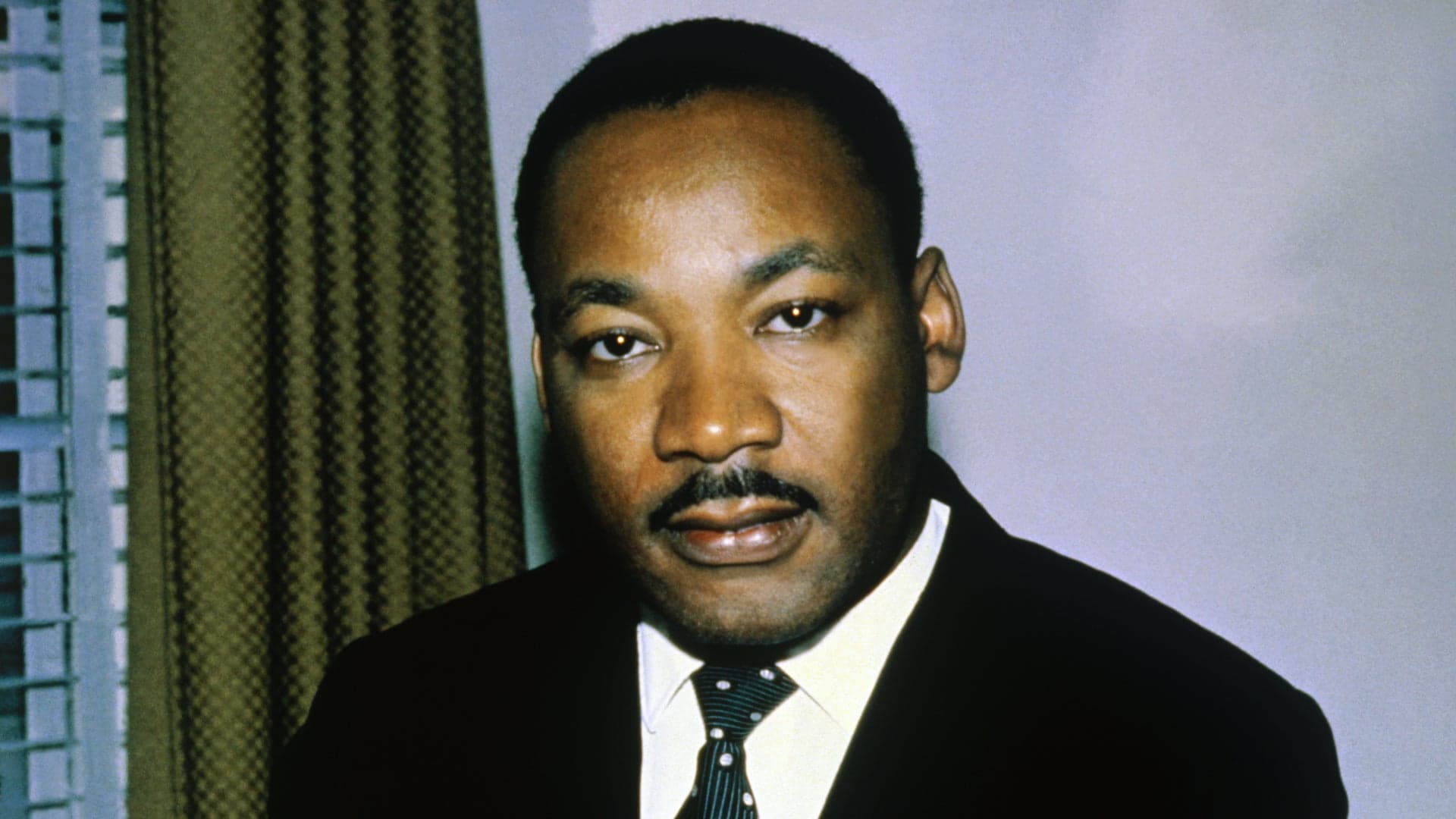On January 15, 1929, Martin Luther King Jr. is born in Atlanta, Georgia, the son of a Baptist minister. King received a doctorate degree in theology and in 1955 helped organize the first major protest of the African American civil rights movement: the successful Montgomery Bus Boycott. Influenced by Mohandas Gandhi, he advocated civil disobedience and nonviolent resistance to segregation in the South. The peaceful protests he led throughout the American South were often met with violence, but King and his followers persisted, and the movement gained momentum.
A powerful orator, King appealed to Christian and American ideals and won growing support from the federal government and Northern whites. In 1963, Bayard Rustin and A. Philip Randolph led the massive March on Washington for Jobs and Freedom; the event’s grand finale was King’s famous “I Have a Dream” speech. Two hundred and fifty thousand people gathered outside the Lincoln Memorial to hear the stirring speech.
In 1964, the civil rights movement achieved two of its greatest successes: the ratification of the 24th Amendment, which abolished the poll tax, and the Civil Rights Act of 1964, which prohibited racial discrimination in employment and education and outlawed racial segregation in public facilities. Later that year, King became the youngest person to win the Nobel Peace Prize (in 2014 Malala Yousafzai became the youngest to receive the prize at age 17). In the late 1960s, King openly criticized U.S. involvement in Vietnam and turned his efforts to winning economic rights for poor Americans. He was assassinated in Memphis, Tennessee, on April 4, 1968.
